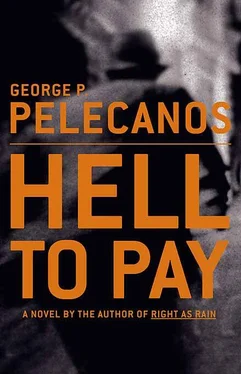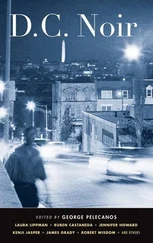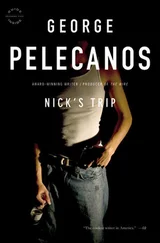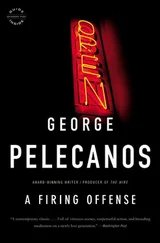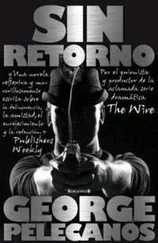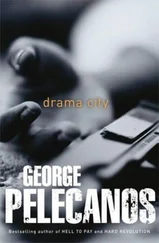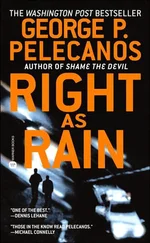Detectives continued to canvass the neighborhood where the shooting had occurred. They posted sketches of the suspects and kept the sketches on hand when interviewing potential wits. They interviewed friends and relatives of Lorenze and Joe Wilder extensively, focusing on the acquaintances of the uncle. Most important, the police department had issued a ten-thousand-dollar reward for any information leading to the arrest and conviction of the shooters. This was the most important element and effort of the investigation. In the end, Strange knew, it would be a snitch who would give them the identity of the killers.
They’re doing a good job. A damn good job so far. They’re doing everything they can.
Strange pulled into the parking lot behind the Fourth District station, found a spot, and cut the engine on his car.
STRANGE went around to the front of the station house, named in honor of Charles T. Gibson, the uniformed officer slain outside the Ibex Club a few years earlier. He went directly to the front desk in the unadorned, flourescent-lit lobby. The police officer on desk duty, a woman he did not recognize, phoned Lieutenant Blue in his second-floor office while Strange signed two release forms for insurance purposes. These were required of all citizens requesting ride-alongs.
Blue appeared in uniform. He and Strange went back through the locker room and down a flight of stairs to the rear entrance. Blue told a sergeant, out in the lot catching a cigarette, that he was taking the Crown Victoria parked leftmost in a row of squad cars facing the building. He mentioned the car’s number, displayed on its side and rear, to the sergeant as well.
Blue got behind the wheel of the Crown Vic, and Strange sat beside him. They drove out onto Georgia at just past midnight and headed south.
The Fourth District, known as 4-D, ran north-south from the District line down to Harvard Street, and was bordered by Rock Creek on the west and North Capitol Street on the east. It included neighborhoods of the wealthy and those of the extreme lower class. With a high rate of sexual assault, auto theft, and homicide, 4-D had become one of the most troubled districts in the city. Chief Ramsey had been considering an eighth police district to break up the Fourth, probably in the form of a substation near 11th and Harvard. It had gotten that bad.
The crime rate in the city, despite the propaganda issued to the media about “New Day D.C.,” was rising once again. In the first six months of the new century, homicides were up 33 percent; rapes had increased by over 200 percent. In ’97, detectives had been transferred and reassigned citywide after an independent investigation had reported substandard performance. Anyone who knew anything about police work knew that results came from a network of informants and neighborhood contacts, and confidences, built up over time. The reassignment had destroyed that system. The result was that the current homicide closure rate was at an all-time low. Two out of three murders in the District of Columbia went unsolved – a closure rate of 31 percent.
The streets were fairly quiet. The temperature had dropped to sweater weather, and it was a work night, and kids had school the next day. But still, kids were out. They were out on the commercial strip and back on the corners of the residential streets, sitting on top of trash cans and mailboxes. A curfew law came and went in D.C., but even when it was in effect it was rarely enforced. No one was interested in locking up a minor who had stayed out too late. Police felt, rightly so, that it wasn’t their job to raise other people’s kids.
“Anything new since the funeral?” said Strange.
“Nothing on the forensic side,” said Blue. “The detectives are doing some serious recanvassing of the neighborhood over there around Rhode Island. And they’re heavily interrogating Lorenze Wilder’s associates and friends.”
“He have any?”
“He had a few. The plainclothes guys at Lorenze’s wake got some information until they got made. And they do have the sign-in book from the funeral home, has the names and addresses of those who bothered to use it.”
“Anything yet from those interrogations?”
“Lorenze was one of those fringe guys. Didn’t work for the most part, least not in payroll jobs. Even his friends admit he was no-account. But none of ’em say he was a target. He wasn’t mixed up in no big-time crews or anything like that. That’s what they’re telling our people, anyway.”
“I’d like to get a list of his friends,” said Strange.
“You know I can’t do that, Derek.”
“All right.”
Blue had said it. He had to say it, Strange knew. And Strange let it lie.
They drove back into the neighborhoods between Georgia and 16th. Blue stopped to check on a drunken Hispanic man who was standing in the middle of Kenyon Street, his face covered in alcohol sweat. He said he had “lost his house.” Blue talked to him carefully and helped him find it. At 15th and Columbia he slowed the patrol car and rolled down his window. A man sat on the stoop of a row house, watching a young boy dribble a basketball on the sidewalk.
“He’s out kinda late, isn’t he?” said Blue.
The man smiled. “Aw, he’s just hyped. You know kids.”
“I hear you,” said Blue, smiling back. “But you need to get him inside.”
“Aiight then,” said the man.
Blue drove away. Strange noted how relaxed he was behind the wheel. Blue had always liked working midnights. He said that the danger in these hours was greater, but the respect between the citizens and cops actually increased between midnight and dawn. The squares had all gone home and were sleeping, leaving an uneasy alliance for those who remained.
Blue took a call on a domestic disturbance at 13th and Randolph. He asked the woman if she wanted the husband, whom she had accused of striking her, to spend the night in jail. She said she didn’t want that, and this call, like most domestics the police answered, ended in peace.
“How’s Terry doing?” said Blue, as he cruised east toward the Old Soldiers’ Home.
“He’s been quiet,” said Strange. “Got a new girlfriend, I think, and he’s been spending time with her. It’s been good for him to be with a woman this week.”
“And you and Janine?”
“Fine.”
“Good woman. That son of hers is a fine young man, too.”
“I know it,” said Strange.
“Lionel gonna be at the game on Saturday?”
“I guess he is.” Strange hadn’t thought much on the game.
“You know we got to play it.”
“Right.”
“Think we ought to have a short practice tomorrow night. Talk to the kids.”
“That’s what we ought to do.”
“They need to pick themselves up, right about now,” said Blue. “They’re gonna see a lot of death in their young lives. I want them to remember Joe, but I don’t want this to paralyze them. You agree?”
“Yes,” said Strange.
Blue looked over at his friend. They had hugged and patted each other’s backs when they’d first seen each other after Joe Wilder’s murder. The both of them felt extreme guilt, Blue for tying Strange up after practice, and Strange for letting Joe out of his sight. But they had been tight since childhood, and this was not something that needed to be apologized for or discussed. Blue was dealing with it in his own way, but he wasn’t sure about how deeply it had burrowed into Strange.
“Listen, Derek-”
“I’m okay, Lydell. Just don’t want to talk about it much right now, all right?”
Blue turned up Warder Street in Park View. They passed a group of row houses, all dark. Inside one of them, Garfield Potter, Carlton Little, and Charles White slept.
BLUE drove around the Fourth. They bought coffee at the all-night Wings n Things at Kennedy Street and Georgia, and drove around some more. They stopped to tell some kids to get off the streets, and answered a domestic. Blue answered another domestic on 2nd but was called suddenly to a disturbance a block away.
Читать дальше
